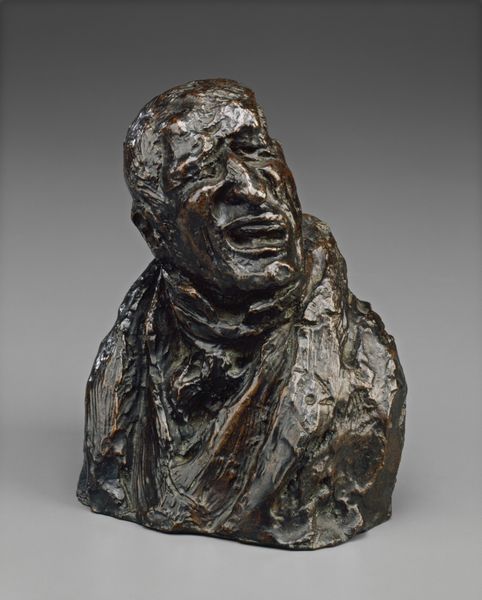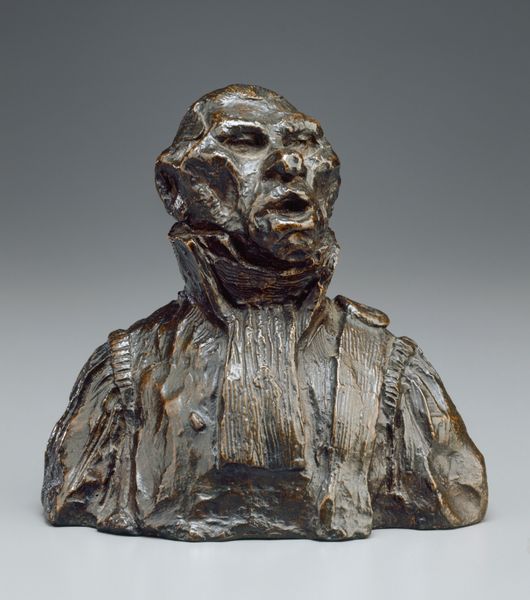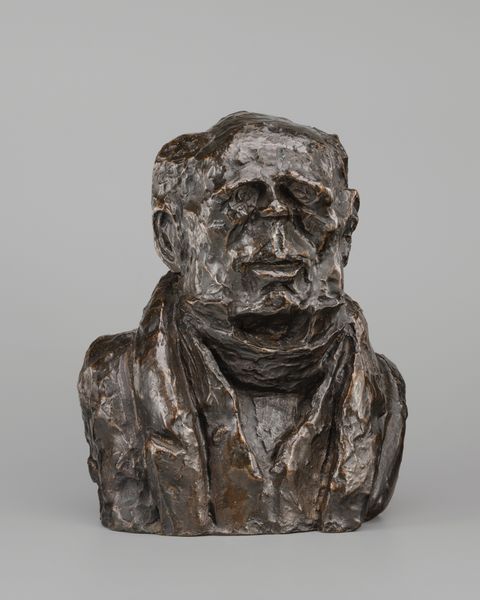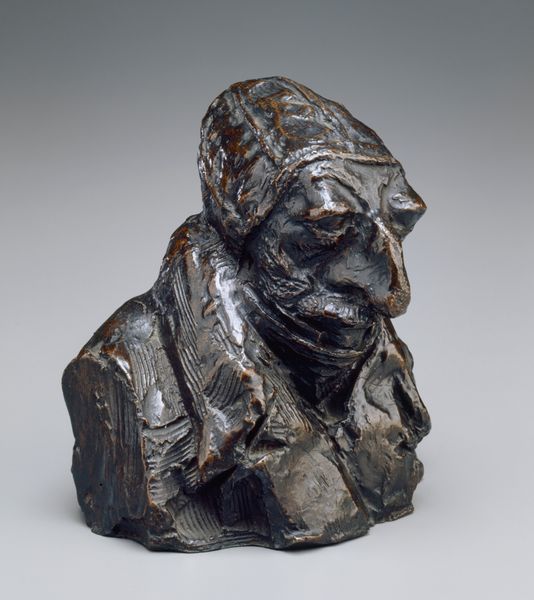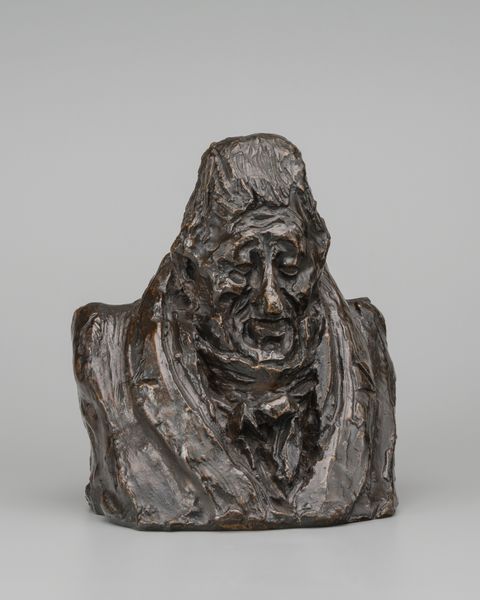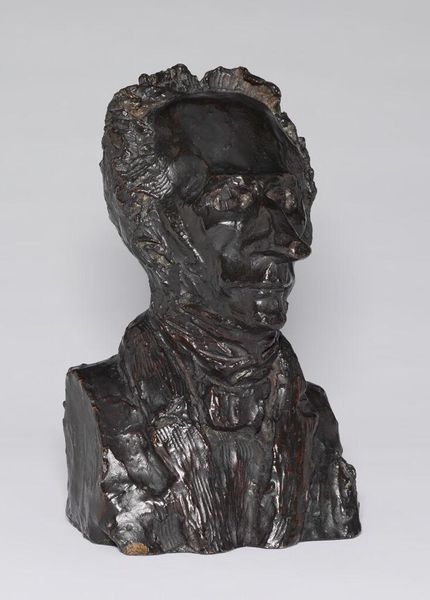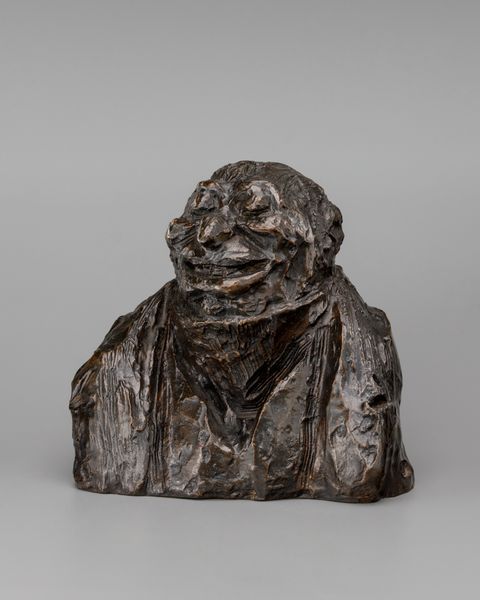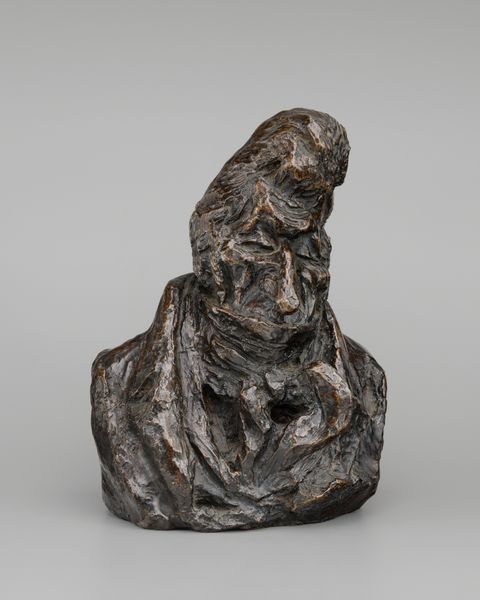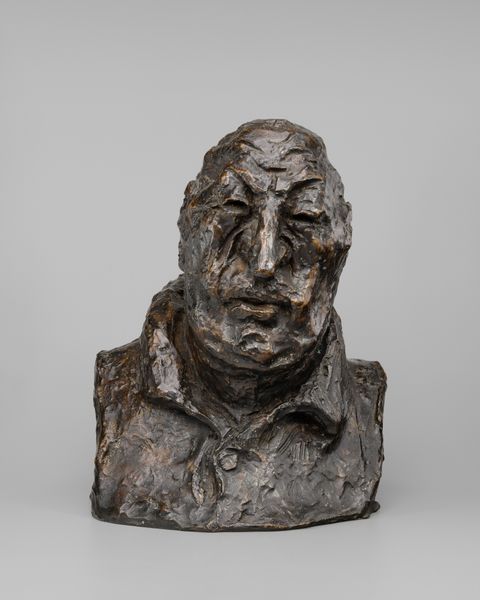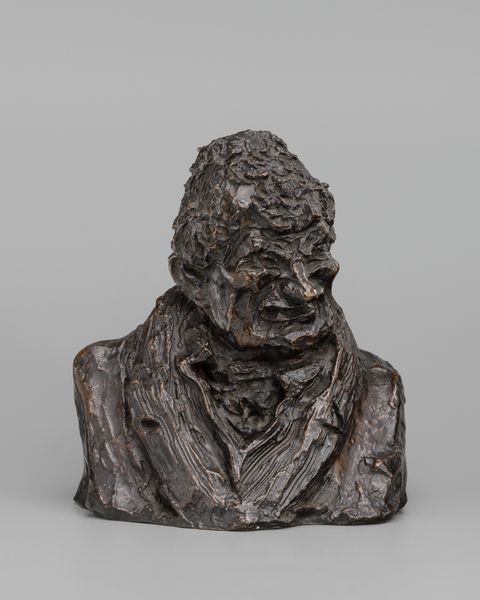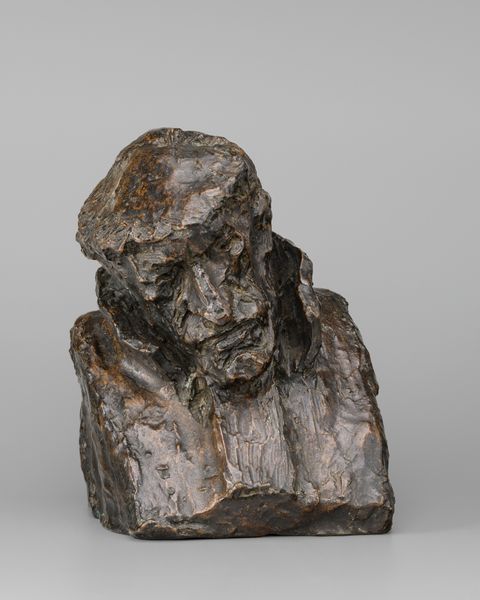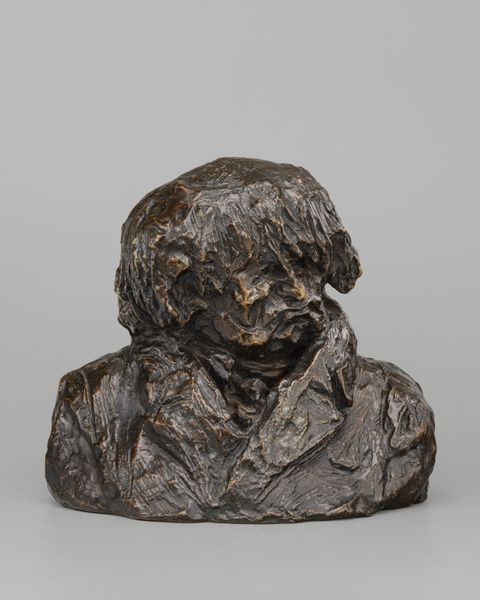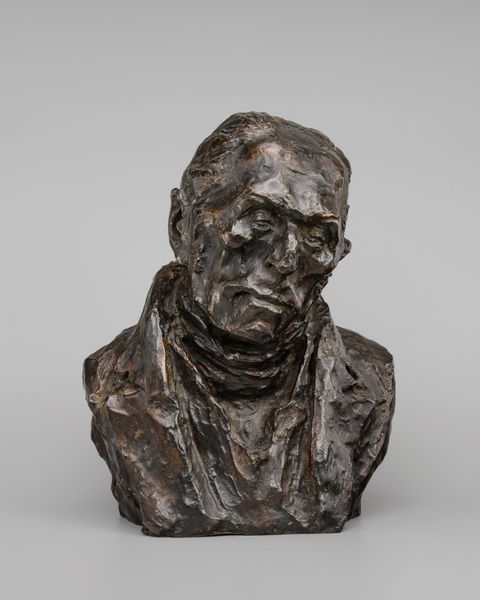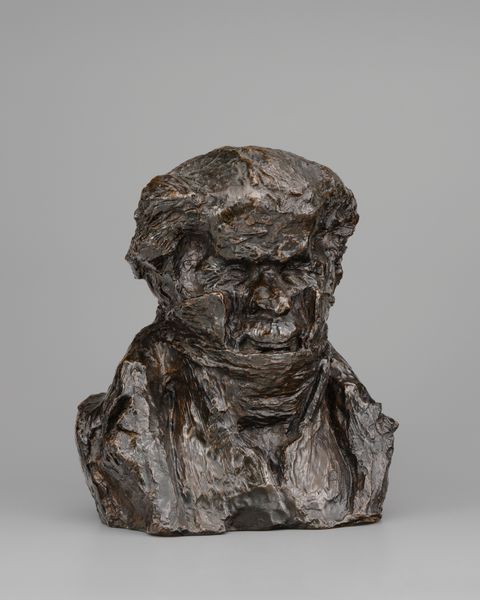
bronze, sculpture
#
portrait
#
stone
#
sculpture
#
bronze
#
sculpting
#
sculpture
#
realism
Dimensions: overall: 17.2 x 12.7 x 12.1 cm (6 3/4 x 5 x 4 3/4 in.)
Copyright: National Gallery of Art: CC0 1.0
Honoré Daumier made this bronze sculpture of Alexandre Lecomte in France, though the exact date is unknown. Daumier was a Republican, living through a period of political turbulence and censorship, and his lithographs often lampooned the political class. In the 1830s, France was ruled by Louis-Philippe, whose government became increasingly authoritarian. This sculpture, along with others in Daumier's series of portrait-charges, satirizes prominent members of the government and artistic establishment. Alexandre Lecomte was a sculptor favored by the state. Daumier's caricature reduces Lecomte to a set of exaggerated features, hinting at the vanity and self-importance Daumier saw in establishment figures. To understand Daumier's work fully, we need to delve into the political and artistic climate of 19th-century France, exploring sources like newspapers, political pamphlets, and exhibition reviews. Art is always made in a particular social and institutional context, and the job of the historian is to reconstruct that context.
Comments
No comments
Be the first to comment and join the conversation on the ultimate creative platform.
